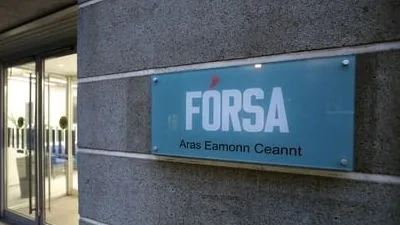As Ireland gears up for its general election, Fórsa, the country’s largest public sector union, is making significant demands for the next government. Representing 87,000 public servants, the union has launched a comprehensive manifesto calling for a four-day working week, pay increases beyond inflation, and the protection of remote working rights.
Fórsa is advocating for a pilot programme to test a four-day working week in parts of the public and civil service. This proposal aims to maintain current pay levels and productivity while improving work-life balance. The union argues that such a change would bring social, economic, and environmental benefits, citing successful trials in the private sector.
However, there is resistance at the top levels of the public service. Kevin Callinan, Fórsa’s general secretary, has highlighted a “principled blockage” preventing the implementation of these trials. Despite this, the union remains steadfast in its call for the public sector to lead by example. People Before Profit-Solidarity TD Mick Barry has endorsed the four-day week proposal, stating that it would be hugely beneficial for both work-life balance and the fight to reduce carbon emissions. He argues that a shorter working week could pay for itself with increased productivity, and that many companies could afford to take a cut in margins to cover costs.
Another critical aspect of Fórsa’s manifesto is the demand for pay increases that exceed inflation rates. The union is pushing for a successor pay agreement to the current public sector pay deal, which runs until 2026. This new agreement should ensure real-term pay increases and address the removal of austerity-era pay scale points for new entrants. Fórsa is also calling for a reduction in the number of increments in public service pay scales and the removal of the two lowest points applied during the austerity era.
Fórsa also advocates for replacing the minimum wage with a living wage, calculated at 60% of the median hourly wage. This change aims to provide a fairer income for workers and is in line with recommendations from the Low Pay Commission. Currently, the minimum wage in Ireland is €12.70 per hour, but Fórsa believes this should be replaced with a living wage to ensure a fairer income for workers.
The union’s manifesto emphasizes the importance of protecting remote working arrangements, which became widespread during the COVID-19 pandemic. Fórsa believes that remote work should remain a viable option for public servants, contributing to better work-life balance and reduced commuting times.
In addition to these primary demands, Fórsa is calling for publicly funded affordable childcare, protections for employees experiencing menopause-related symptoms, and increased statutory leave for victims of domestic violence. The union has made recommendations in the areas of healthcare, gender equality, and education, among others.
Fórsa is also advocating for the use of directly employed public servants to carry out and deliver public services, avoiding the outsourcing of duties and services.
Fórsa’s proposals have significant support among public service workers. A recent survey revealed that 74% of public service workers would vote for political parties or candidates committed to trialling a four-day work week. This strong backing underscores the importance of these issues to the union’s members and their potential impact on the upcoming election.
As the election looms, Fórsa’s demands highlight the broader challenges facing public sector workers in Ireland. The union’s push for a four-day work week, fair pay, and remote working protections reflects a growing desire for a more balanced and equitable work environment. Whether these demands will be met by the next government remains to be seen, but they undoubtedly set the stage for critical discussions in the weeks leading up to the election.
